Home > Articles > The Archives > Curly Seckler—Willis Spears and the Nashville: Grass A Legacy Lives On
Curly Seckler—Willis Spears and the Nashville: Grass A Legacy Lives On
Reprinted from Bluegrass Unlimited Magazine
February 1990, Volume 24, Number 8
John Ray (Curly) Seckler, notable pioneer of bluegrass music was born on Christmas day, 1919, near China Grove, North Carolina. Since then he has been proclaimed by many including the late Lester Flatt as the greatest tenor singer in bluegrass music.
All the Seckler family were gifted musicians so it was only natural that Curly learned to play guitar and banjo at an early age. By the time Curly was eighteen he and his brothers had formed a band called the Yodeling Rangers.
The band played for local dances and social functions before landing a job on WSTP radio in Salisbury, North Carolina. The boys couldn’t afford cases for their instruments. So their mother sewed together some heavy red material putting a zipper in top.
“We did a fifteen-minute program three days a week sponsored by the Russell Furniture Company. Our only compensation was furniture and it wasn’t long before we filled our old two-story farmhouse with furniture,” recalls Curly.
Shortly after Charlie and Bill Monroe disbanded, Charlie was playing the Carolinas and heard Curly over WSTP. He immediately realized that here was the tenor singer he was searching for.
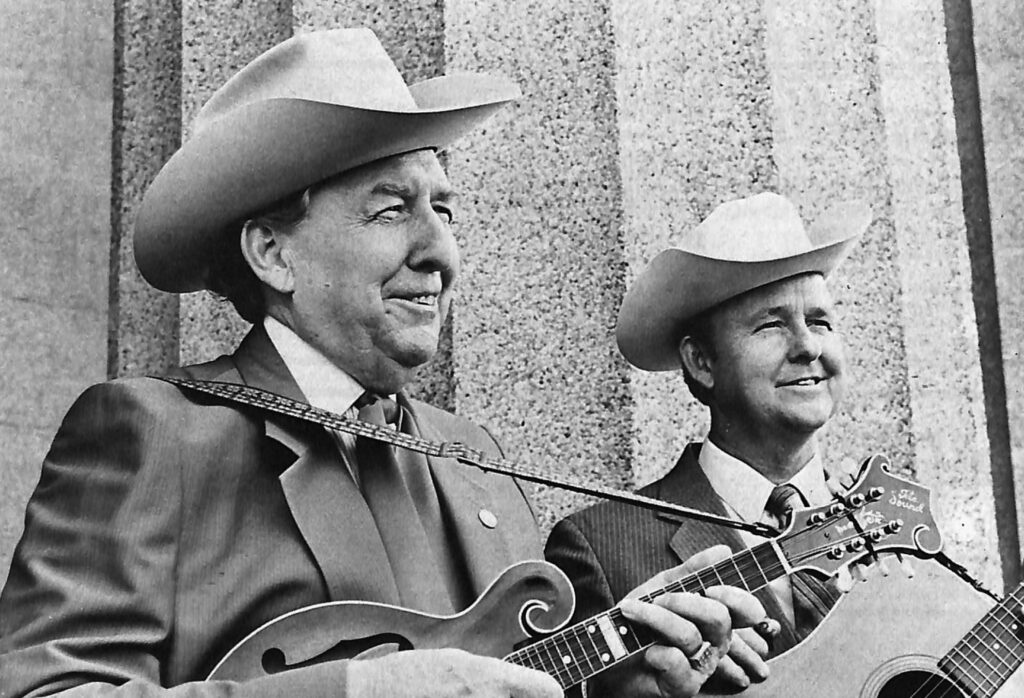
“I was around nineteen when Charlie contacted me about going on the road with his band. At the time I had never been any farther than nearby Salisbury and most of the time we traveled there by two-horse wagon,” relates Curly.
Curly’s reluctance to leave home kept Charlie increasing his offer to a point Curly couldn’t refuse. In 1939, Curly left with Charlie Monroe and his Kentucky Pardners to join the WWVA Wheeling [West Virginia] Jamboree.
During his first tenure as a Kentucky Pardner, Curly played banjo and sang tenor. In 1940, Charlie Monroe moved his group to WHAS in Louisville, Kentucky. Soon after the move to Louisville, Curly and Tommy Scott left for Anderson, South Carolina, to form their own band. At this time Curly borrowed $42.00 and purchased his first mandolin.
The second World War broke out in 1941, and Tommy Scott and Curly disbanded. Curly then joined Leonard Stokes and the Melody Boys in Knoxville, Tennessee, playing for Cas Walker over WROL and WNOX.
In 1943 and 1944, Curly worked for the Main Post Office in Columbus, Ohio. Then in 1945, he came to Nashville with Danny Bailey where they worked on WSM. The group was called Danny Bailey and the Happy Valley Boys.
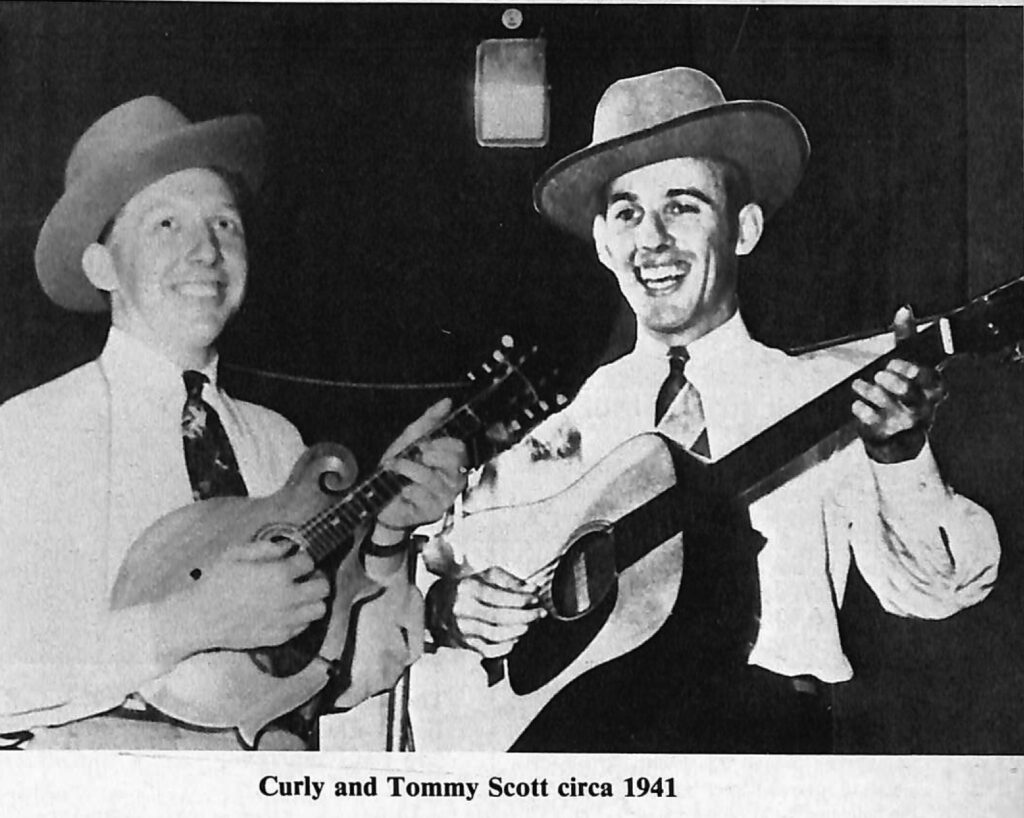
In the latter part of 1946 (September 30th to be exact). Curly also participated in an important recording session at the Piedmont Hotel in Atlanta, Georgia, with Charlie Monroe playing mandolin and cutting such classics as, “Mother’s Not Dead, She’s Only Sleeping” and “There’s No Depression In Heaven.”
Curly and Mac Wiseman teamed together in 1947 working over WCYB Bristol, Tennessee/Virginia. Next Curly went with Hoke Jenkins (nephew of Snuffy Jenkins). They worked as the Smoky Mountaineers on WGAC Augusta, Georgia. This group included such notable artists as Wiley Morris and Jim and Jesse McReynolds.
A highlight among fans of the Smoky Mountaineers seemed to be the trio numbers. They did the old songs Curly had previously recorded with Charlie Monroe with Jim singing lead, Curly tenor and Jesse harmonized with the baritone part.
Curly received a call from Lester Flatt and joined the Foggy Mountain Boys in 1949. Lester and Earl were working on WVLK Versailles/Lexington, Kentucky at the time.
After a year with Flatt and Scruggs, Curly returned to WCYB in Bristol, this time with Carl and J.P. Sauceman. Later Curly went with the Stanley Brothers. “Carter had a problem and I could see we wouldn’t get along, so I left the Stanleys in just a few weeks,” says Curly.
Soon Curly was back with Hoke Jenkins along with Jim and Jesse. In just a short time Jim and Jesse received a contract with Capitol Records.
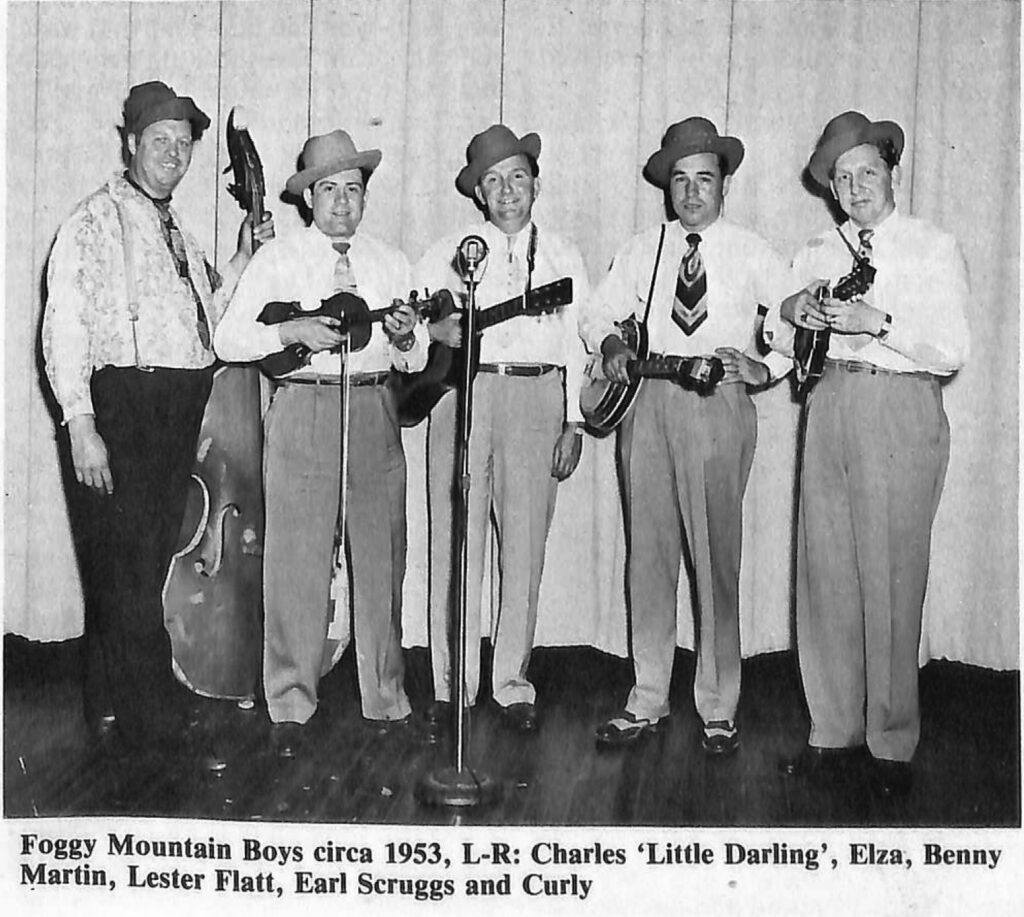
“Jim and Jesse took Hoke and myself to Nashville where we were to record at the Castle Studios in the old Tulane Hotel. We needed a fiddle player, so Ken Nelson, an executive with Capitol, brought in a young fiddler named Sonny Loden. The session included Hoke on banjo, Jesse mandolin, Sonny fiddle along with Jim and I on two guitars,” recalls Curly. (Sonny Loden later became the country music giant, Sonny James).
Curly had written a song titled “Purple Heart” which was used on the first Capitol session. He continues to use the song on his programs today.
In 1952, Curly again joined the forces of Flatt and Scruggs. “I was with Lester and Earl when they joined Martha White and moved from Knoxville to Nashville. We traveled over 100,000 miles a year, playing school houses, theaters, auditoriums, radio and television stations,” states Curly.
Seckler recorded well over 80 records with Flatt and Scruggs on both Mercury and Columbia records. Several of the most noted were “Roll In My Sweet Baby’s Arms” and “My Little Girl In Tennessee.” Many bluegrass historians have attributed Curly’s clear crisp tenor voice as a major role in the success of Flatt and Scruggs.
“In 1962, I left Lester and Earl to retire from music. I ran my own trucking business for the next twelve years. You know you can take soap and wash yourself clean. But there ain’t no soap that can wash my music out of me.”
The bluegrass festivals were getting a start in the early 70s and promoters began booking Curly on many of the major festivals. “I worked for the most part as a single act during the early ’70s. But Lester and his Nashville Grass were booked on many of the same festivals as I. It was always a delight to the audience when Lester would bring me on to guest on a couple numbers,” recalls Curly.
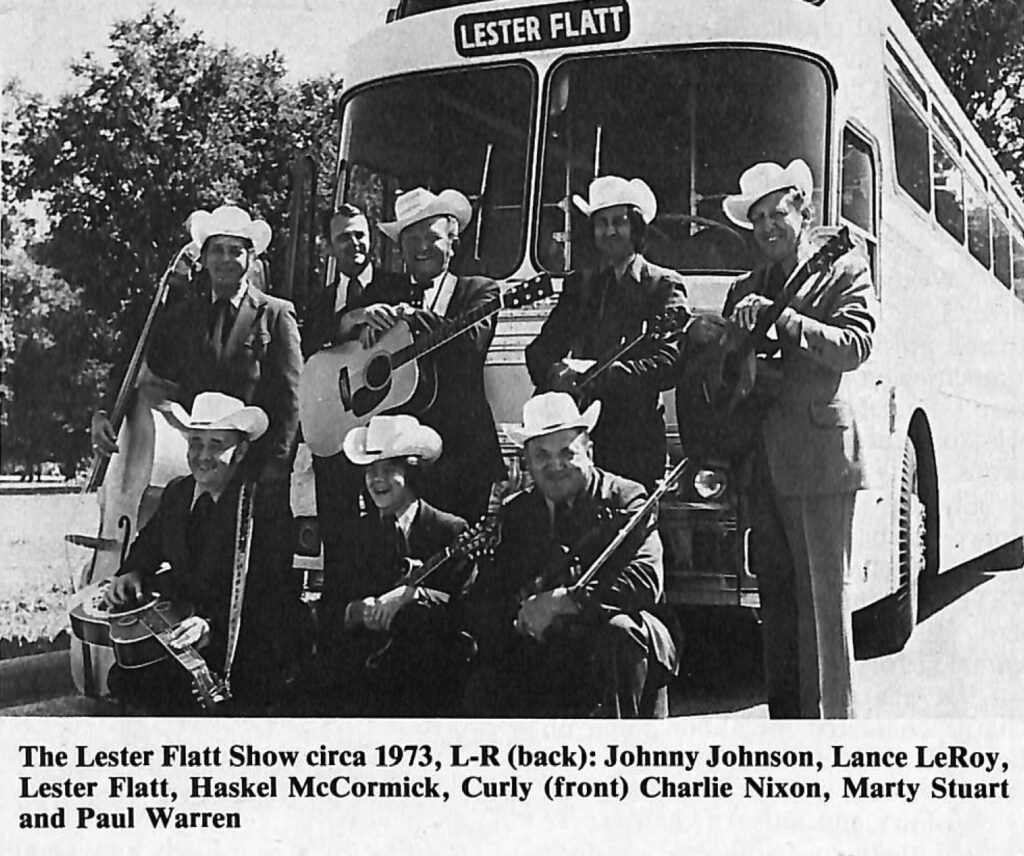
Curly’s first solo album titled “Curly Seckler Sings Again” was released by County Records in 1971. Accompanying Curly were the Shenandoah Cutups. The album included two Seckler compositions “That Old Book Of Mine” and “No Mother Or Dad,” the latter being the first song Curly ever wrote.
In March of 1973, Curly once again went to work for Lester Flatt, this time as a member of the Nashville Grass. By the mid ’70s Lester’s health was fading and he relied more and more on Curly to keep the show going.
“Many times we would arrive at a show date and Lester would tell me to go on with the show and not mention he was on the bus. But, if he was able he would come on stage and do a number,” says Curly.
Only a few months before his death Lester asked Curly to carry on with the band if something happened to him. In that hospital room as Curly held the hand that had perfected a famous guitar run he made the promise to carry on with the Nashville Grass.
“As I held Lester’s hand I had doubts about being able to make a living doing this as Lester did. But I was reassured when Lester said, “Curly if you keep the music down to earth as we always have, it won’t take long before they will accept you without me,” It was hard and I lost some money the first two years, but I realize now Lester knew what he was saying,” remembers Curly.
Today Curly continues with the tradition handed him by Lester Flatt. “The only thing I’ve changed is we do more gospel numbers. We include four to five gospel songs in a 45 minute set and every other album I try to make all bluegrass gospel,” says Curly.
Since the death of Lester Flatt, Curly and the Nashville Grass have recorded six albums, one of the albums included special guest Johnny Cash. “Johnny and Lester were close friends and had often mentioned doing an album together. When I asked Johnny to be on our second album, he graciously agreed,” recalls Curly.
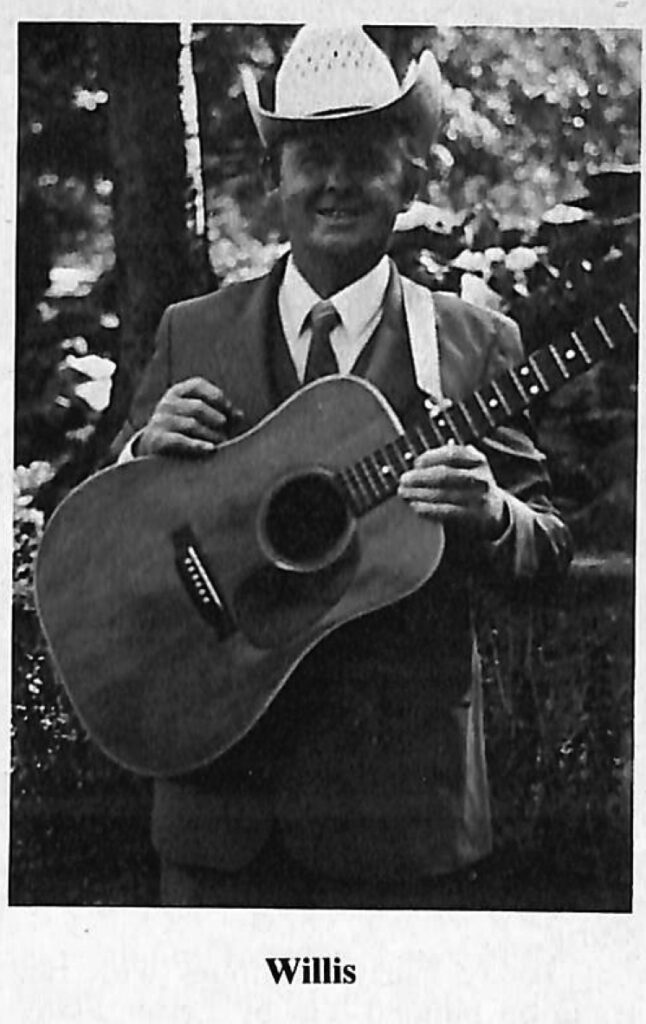
The Nashville Grass play mostly festivals and large auditoriums. “I refuse to play honky tonks, but Mr. Gray, owner of the Station Inn here in Nashville, kept after me for a year to play his place. One afternoon he phoned and asked me to just give the place a try. I agreed and we rocked the place with “Foggy Mountain Breakdown” and “Old Salty Dog’ Blues.” But when we did our gospel numbers you could hear a pin drop.”
For the last seven years the Nashville Grass have been playing the Station Inn twice a year. Curly says, “They do sell beer but you can’t call it a honky tonk.”
Willis Spears, the seventh of nine children was born September 13, 1940 on a farm near Summertown, Tennessee. His mother played guitar and recognized the youth’s interest in music, purchasing him a Harmony guitar for $37.50. By the age of twelve Willis had learned the basic guitar chords.
“My first interest in bluegrass was when I first heard Lester Flatt sing with Bill Monroe on the Opry in 1945,” remembers Willis.
After graduating high school Willis went to work for the Murray Ohio Manufacturing Company that had just opened a plant in Southern Middle Tennessee. Shortly after, he met Bruce Weathers who had been playing banjo for Bill Monroe. “I spent many happy hours at the Weathers’ home jamming with Bruce,” says Willis.
In 1963, Willis was drafted in the Army, where he played with several different bluegrass bands entertaining at local events.
After his honorable discharge from the Army in 1965, Willis resumed his career with the Murrary Company and he and his wife Jane made their home in Summertown.
Willis soon joined the Cumberland Mountain Trio playing bluegrass music on the weekends. “We made one album and played every Saturday over WDKN radio in Dixon, Tennessee,” recalls Willis.
Willis met Fiddlin’ Johnny Warren, then a member of the Nashville Grass, at a bluegrass program held in Lawrenceville, Tennessee. The two hit it off immediately and Willis would often go into Nashville and jam with Johnny and friends.
It was at one of these jam sessions when Johnny asked his boss, Curly Seckler, to drop by and listen to Willis. “We did several numbers together and he sounded so much the way Lester did in the ’50s,” recalls Seckler.
In May 1981, Willis joined the Nashville Grass as lead singer. “Sometimes folks think I try to sound like the late Lester Flatt, but I’ve never tried to sing like anyone. It’s just the natural way I sound.”
Curly asked Willis to become his partner and on January 1, 1987, the name was changed to “Curly Seckler, Willis Spears and the Nashville Grass.”
Willis is very proud his two children Melissa and Gregory Paul have taken an interest in bluegrass music. Gregory Paul plays guitar, Melissa mandolin and her husband Phillip Staff plays doghouse bass.
Curly and Willis plan to continue with the musical trend adopted by the Foggy Mountain Boys years ago. “I’m getting some age on me, but I feel confident Willis will carry on should something happen to me, just as I did for Lester,” says Curly.
Share this article
1 Comment
Leave a Comment Cancel Reply
This site uses Akismet to reduce spam. Learn how your comment data is processed.
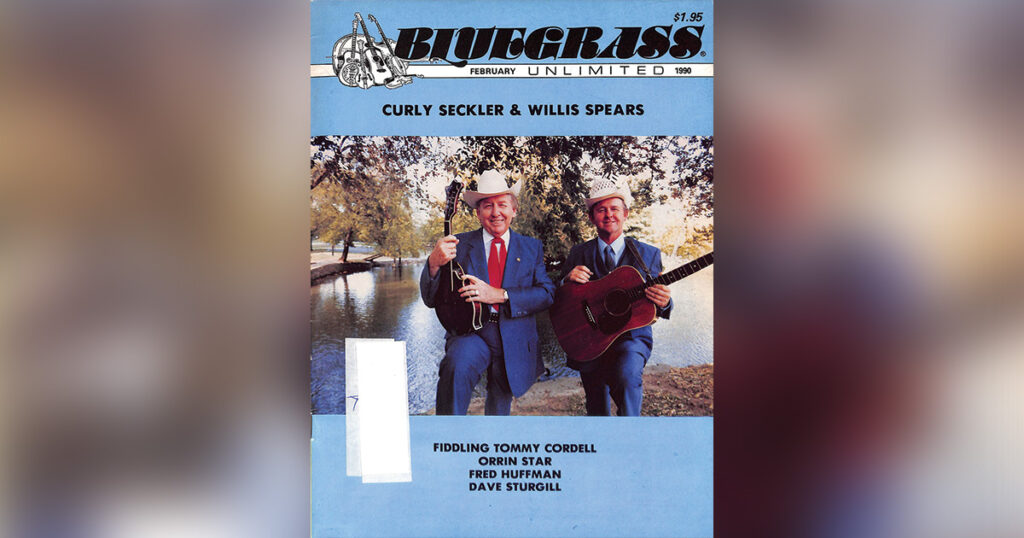
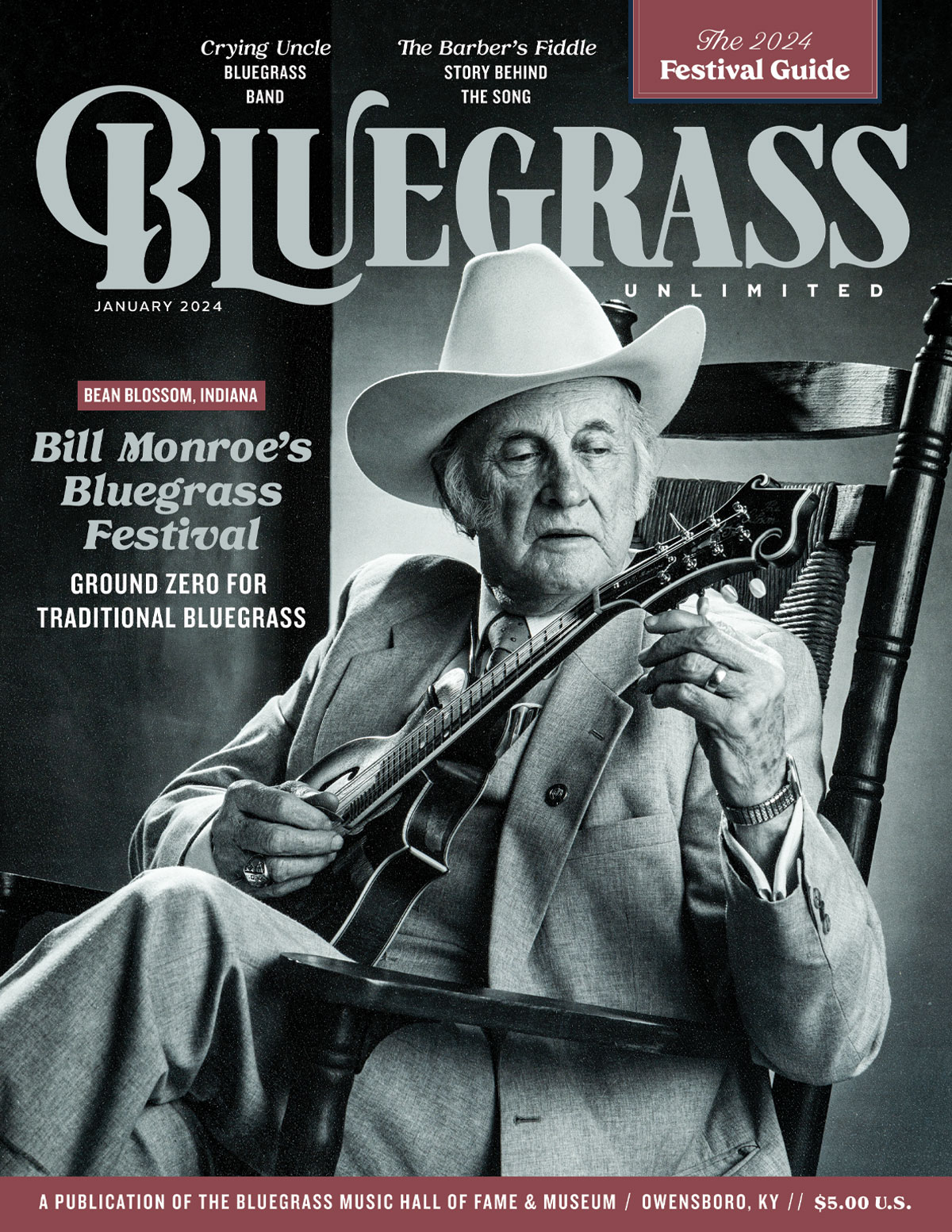
Wonderful article. I learned a lot.